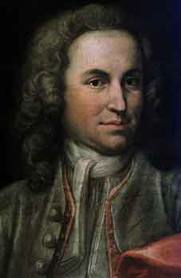

Lexicographer, composer and scholar. Brossard prepared for the priesthood at Caen from 1670, assuming lower orders in 1676. His musical training was chiefly informal and autodidactic, based pn studyin and copying scores collected for his private library. From 1678 he spent a decade in Paris, possibly pursuing formal musical studies. In 1684 he was a priest at Nôtre Dame; in 1687 he was named a vicar at Strasbourg Cathedral. He remained there until 1698. He founded an Académie de Musique at Strasbourg in 1687 and arranged Lully's Alceste for performance there. It was during the decade he spent in Strasbourg that he acquired the bulk of his music library, which has since become legendary. A collection of 157 sonatas acquired by Brossard bears the name Codex Rost, after the Cantor at Baden-Baden, Franz Rost (1640-1688). It is sometimes the only source of works by certain German and Italian composers of the 17th century. In 1698 he became maître de chappelle at Meaux Cathedral; he was made a canon in 1729.
He briefly was the private tutor of the young son of Nicolas-Joseph Foucault, a collector and bibliophile. He became a very close friend to Étienne Loulié, one of the musicians who performed the Italianate works that Marc-Antoine Charpentier was composing for Marie de Lorraine, Duchess of Guise, better known as "Mademoiselle de Guise." While in Paris, he also became close to Samuel Morland, an English inventor and polymath who was working with Joseph Sauveur, a mathematician, on the Machine de Marly. It was during talks about music with Morland that Brossard deduced the role that a major third versus a minor third play in differentiating a major scale from a minor scale.
These contacts shaped Brossard's future preoccupations. He enthusiastically embraced Italian music; he became a collector of musical manuscripts and music treatises; he perfected his knowledge of musical theory; and autodidact though he was, he honed his compositional skills.
Brossard wrote a book on Greek, Latin, and Italian musical terms, the first music dictionary in French, in 1703, his Dictionaire de musique, contenant une explication des termes grecs, latins, italiens, et françois. In 1724, he offered his very rich library, together with its annotated catalogue, to Louis XV, in exchange for a pension. (Among the items in the collection were the unpublished manuscripts of his late friend Étienne Loulié.
A manuscript work of 393 pages accompanied by an alphabetical index of 253 pages, this catalogue today constitutes an incomparable source of information on music bibliography, the quality of printings, aesthetics, and the musical theory of the era. The manuscript (now available in published form) is kept at the Music Department of the Bibliothèque nationale de France.
In addition, Brossard wrote six books of serious airs and drinking songs (1691-1698), several motets, a Missa quinti toni, a few trio sonatas, and the Lamentations du prophéte Jérémie (1721).